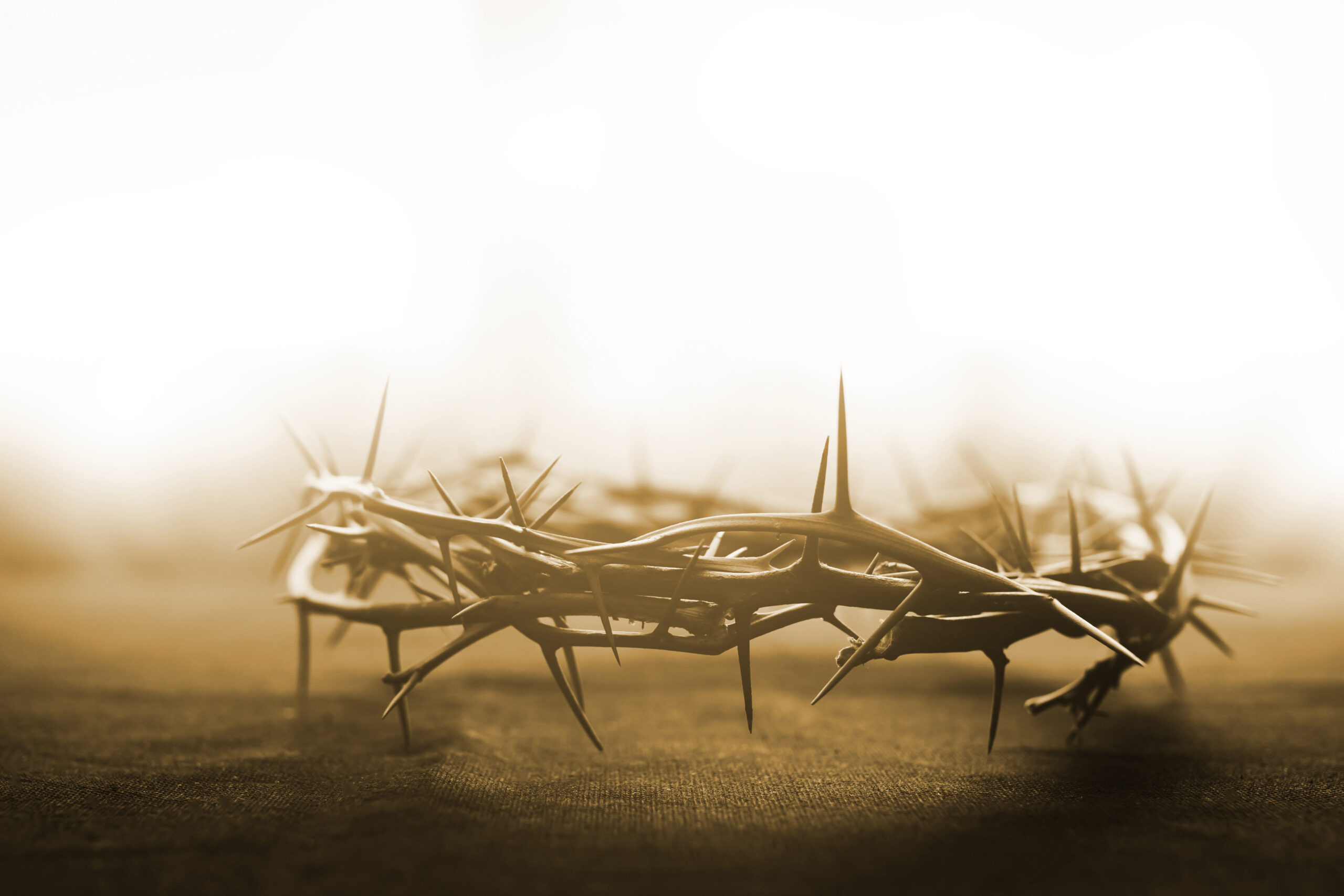What we believe...
We believe Jesus Christ (Yeshua) is God, in His virgin birth, in His sinless life, in His miracles, in His death that paid for our sin through His shed blood, in His bodily resurrection, in His ascension/rising up to the right hand of the Father and in His personal return in power and glory.
Bible Based

We aims to read and understand the Bible through the perspective of the men and women who lived in the Biblical past. We look deeper into the context, the original languages, and the surrounding cultures of these Ancient texts.
Statement of Faith
Our Statement of Faith (what we believe) provide a common ground of truth which serves as the basis of common worship, fellowship and service to Christ as one spiritual Body and family in the local church
(3 John 1:3-4).
The Bible
We teach the Bible is Holy Scripture and consists of the sixty-six books of the Old and New Testaments. The Bible alone is the Word of God, verbally inspired by God, without error in the original manuscripts, and the complete, sufficient, and only infallible rule of faith, life, and practice for every believer (2 Timothy 3:16- 17; Hebrews 4:12; 2 Peter 1:19-21; John 10:35; Revelation 22:18-19).
The whole counsel of God is either expressly stated in Scripture or may be deduced from them; and nothing at any time is to be added by man, by new revelations, or from the traditions of men. At the same time, we affirm that the inward illumination by the Spirit of God is necessary for the saving understanding of such things as are revealed in the Word of God. The Bible is wholly self-consistent and is to be read and understood in a normal, literal, face-value manner. Whereas there may be several applications of any given passage of Scripture, there is but one true interpretation (John 6:45; 7:17; 16:12- 15; Galatians 1:8-9; 1 Corinthians 2:7-15; 2 Timothy 3:15-17; 2 Thessalonians 2:2; 1 John 2:20).
The Trinity

Creation
Man
We teach that humanity began when God created Adam and Eve directly and immediately in His image and likeness, in the beginning, as male and female (Genesis 1:27). Man was created as a finite being, free of sin with a rational nature, intelligence, volition, self-determination, and moral responsibility to God (Genesis 2:7; 15-25; James 3:9). We teach that God intends humanity to glorify Him, enjoy His fellowship, live his life according to God’s will, and by this accomplish God’s purpose for humanity in the world (Isaiah 43:7; Colossians 1:16; Revelation 4:11). We teach that Adam was a real man, and through his sin of disobedience to the revealed Word of God, man lost his innocence; incurred the penalty of spiritual and physical death; became subject to the wrath of God; and became inherently corrupt and utterly incapable of choosing or doing that which is acceptable to God apart from divine grace. With no recuperative powers to enable him to recover himself, man is hopelessly lost. Man’s salvation is thereby wholly of God’s grace through the redemptive work of our Lord Jesus Christ (Genesis 2:16-17; 3:1-19; John 3:36; Romans 3:23; 6:23; 1 Corinthians 2:14; Ephesians 2:1-3; 1 Timothy 2:13-14; 1 John 1:8). We teach that because all men were in Adam, a nature corrupted by Adam’s sin has been transmitted to all people of all ages, Jesus Christ being the only exception. All people are thus sinners by nature (from conception), by choice, and by divine declaration (Psalm 14:1-3; 51:5; Jeremiah 17:9; Romans 3:9-18, 23; 5:10-12).
Salvation
We teach that salvation is wholly of God, a free gift by His grace, on the basis of the redemption of Jesus Christ, by the merit of His shed blood, and not on the basis of human merit or works (John 1:12; Ephesians 1:4-7; 2:8-10; 1 Peter 1:18-19). We teach that a person is saved the moment that individual believes in the Gospel of Jesus Christ, which entails repenting of sin toward God, acknowledging Jesus as Lord and Savior, trusting in His sacrificial death on the cross which appeased God’s wrath, and believing that He rose bodily from the grave according to the Scriptures (Matthew 4:17; Acts 16:31; 20:21; Romans 1:16; 10:9-10; 1 Corinthians 15:1-4). This work of salvation is accomplished by the supernatural agency of the Holy Spirit, in an instantaneous moment of time (it is not a process), whereby that person is declared judicially righteous before God (hence, justified); is totally forgiven of all sin; receives eternal life (John 3:16); is adopted into the family of God; becomes a co-heir with Christ (Revelation 3:21); is given a new mind (1 Corinthians 2:16), nature (2 Peter 1:4), and lifestyle (2 Corinthians 5:17); and is endowed with the literal residing presence of God’s Holy Spirit until the mortal body is redeemed (Romans 2:4; 8:9-11, 23; 2 Corinthians 5:21; Titus 3:5). We teach that salvation has always been the same for believers in every age, by grace through faith apart from works (Romans 4:1-8; Hebrews 11:1-40).
Sanctification
We teach that at the moment of salvation the believer is justified, or declared righteous by God, and is considered holy and perfect in position and status before God. From a legal standpoint, the righteousness of Christ has been imputed to the believer, but practically the new Christian is spiritually immature in many ways (1 Corinthians 3:1-3; Galatians 4:19; Ephesians 4:14; Hebrews 6:1-3; 1 John 2:12) and, in addition, still has to contend with indwelling sin and the flesh, which is our fallen, unredeemed humanity (Romans 7:14-25).
As a result, all believers are vulnerable in various degrees to all manner of sin and temptation. Yet, God expects all believers to keep growing in spiritual maturity over the course of the Christian life, the goal of which is always to pursue Christ-likeness (1 Corinthians 11:1; 2 Peter 1:5-8). The process of maturing spiritually, what Scripture describes as “growing…in respect to salvation” (1 Peter 2:2), is called sanctification. “Sanctified” means to be “set apart by God.” At the heart of sanctification is increasing in the knowledge of the truth, or, being renewed to a true knowledge according to the image of Christ (Ephesians 1:15-19; Colossians 3:10). Sanctification comes with being transformed in the renewing of one’s mind or thought life (Romans 12:2), the fruit of which is obedience (Romans 12:1; Philippians 2:12).
All believers will go through the process of sanctification in this life (Philippians 1:6; Hebrews 12:14), but at varying rates and degrees (1 Corinthians 3:1-3; 1 John 2:12-14). Sanctification begins at justification and culminates in glorification (Romans 8:29-30). Sanctification is ultimately a work of grace initiated by God in the life of the believer (2 Corinthians 3:18). We are not sanctified by our works (Galatians 3:3). The agent of sanctification is God’s Spirit and the means is His Word (1 Peter 1:2; Psalm 119:9, 11).
The Church
We teach that the Church is the Body of Christ and began on the day of Pentecost, fifty days after Jesus’ death (Acts 2:1 ff.), and consists of a living spiritual body of believers who will be made complete at the coming of Christ for His own at the rapture. The Church is thus a unique spiritual organism designed by Christ, made up of all born-again believers in the present age. Christ is the Head and Lord of the Church (Ephesians 4:15; Colossians 1:18).
We teach that there are two ordinances instituted by Christ during His ministry, baptism and the Lord’s Supper (or communion). They are to be regularly celebrated by the Church until Jesus returns.

Baptism is a symbol to the party baptized of the following: of fellowship with Christ in His death and resurrection; of being grafted into Him; of the forgiveness of sins; and of purposing before God, through Jesus Christ, to live and walk in newness of life. It does not save, but is an outward symbol of an inward cleansing. Those who can comprehend the gospel—who actually profess repentance towards God, faith in, and obedience to, our Lord Jesus Christ, are the only proper subjects of this ordinance. The outward element to be used in this ordinance is water, wherein the party is to be baptized by immersion, in the name of the Father, and of the Son, and of the Holy Spirit. Immersion is necessary to the due administration of this ordinance (Romans 6:3-5; Colossians 2:12; Galatians 3:27; Mark 1:4; Acts 22:16; Matthew 3:13-16; 28:19-20; Mark 16:16; Acts 2:38- 39, 41; 8:12, 36-39; 18:8; John 3:23)
The Lord’s Supper is for the remembrance of Christ’s sacrifice and death, the confirmation of the faith of believers in all the benefits of His death, their spiritual nourishment and growth in Him, and their further engagement in and to all duties which they owe to Him; and to be a bond and pledge of their communion with Him, and with each other. In this ordinance, Christ is not offered up to His Father again, nor is any real sacrifice made at all for forgiveness of sin of the living or dead; nor is Christ present in, with and under the elements in any physical way. Rather, the bread and the cup symbolize the body and blood of Christ, and give a visible symbol to believers that Christ was truly sacrificed once for all, and is truly present spiritually in the midst of and in the hearts of His people. All those who have believed on the Lord Jesus Christ and who are living lives of obedience worthy of Christ, whether members of our local fellowship or not, may partake of the Lord’s Supper (1 Corinthians 10:16-17, 21; 11:23-26; Matthew 18:20; John 14:17, 23; Colossians 1:27; Hebrews 9:24-26; 10:11-14).
Unbelievers cannot experience real communion with Christ, and are therefore unworthy of the Lord’s Supper. Whoever shall receive the elements in an unworthy manner, are guilty of the body and blood of the Lord, eating and drinking judgment on themselves (1 Corinthians 11:27, 29-30).
Angels
Holy Angels: We teach that angels are created beings and are therefore not to be worshiped. They are created to serve God and to worship Him (Luke 2:9-14; Hebrews 1:6-7, 14; 2:6- 7; Revelation 5:11-14; 19:10; 22:9).
Satan and Demons
We teach that Satan is a created being and introduced sin into the created universe. He incurred the judgment of God by rebelling against his Creator (Isaiah 14:12-17; Ezekiel 28:11-19), by taking numerous angels with him in his fall (Matthew 25:41; Revelation 12:1-14), and by introducing sin into the human race by his temptation of Eve (Genesis 3:1-15).
We teach that Satan is the open and declared enemy of God and man (Isaiah 14:13-14; Matthew 4:1-11; Revelation 12:9-10); that he is the prince of this world (John 12:31, 14:30), who has been defeated through the death and resurrection of Jesus Christ (Romans 16:20); and that he shall be eternally punished in the lake of fire (Isaiah 14:12- 17; Ezekiel 28:11-19; Matthew 25:41; Revelation 20:10).
Death
We teach that it is appointed for every person to die physically as a consequence of sin (Hebrews 9:27; Romans 6:23), and upon death incur God’s appropriate judgment. Physical death involves no loss of our immaterial consciousness (Revelation 6:9-11), yet there is a separation of soul and body (James 2:26); the soul of the believer passes immediately into the presence of Christ (Luke 23:43; 2 Corinthians 5:8); and the souls of the unsaved at death are kept under punishment (Luke 16:19-26). There is no soul sleep or purgatory.
We teach that the believer’s soul in Christ’s presence remains there in conscious joy until the Rapture when he, along with those believers physically alive (1 Thessalonians 4:13-17), will receive a resurrection body (1 Corinthians 15:12-58; Philippians 3:20-21). The souls of the unsaved are in torment until the second resurrection that will be followed by the final Great White Throne Judgment (Revelation 20:13-15).
Future Events and Eternity
We teach the promised Messianic Kingdom of the Old Testament comes to the world in two aspects. Christ instituted its spiritual aspect at His first coming (Acts 2:30-36; Hebrews 1:2), yet its physical aspects will be fulfilled in a future earthly Millennial Kingdom (1 Corinthians 15:24-28; Revelation 12:10) over all the earth in fulfillment of Old Testament promises of a restored Israel (Jeremiah 23:3- 8; Isaiah 11:11-12; Romans 11). We teach the premillennial return of the Lord Jesus Christ personally and bodily as King of Kings and Lord of Lords (Matthew 24:29- 31; 2 Thessalonians 1:9-10; Acts 1:11; Revelation 19:11-21). This return is presented in the New Testament as both near (Revelation 22:12) and distant (Matthew 25:19), yet its exact timing is unknown to men (Matthew 25:13; Mark 13:32; 1 Peter 1:10-11; Acts 1:7). The New Testament teaching on the certainty of Christ’s return is intended to promote encouragement (John 14:1-2; 1 Thessalonians 4:18), hope (Titus 2:13), purity (1 John 3:3), and faithful stewardship among believers (Matthew 25:14-30) and repentance and accountability for unbelievers (Acts 17:30-31). The two elements of His return, normally designated as Rapture and Second Coming, are not often mentioned with distinction in the New Testament (1 Thessalonians 2:19; 2 Thessalonians 2:1, 8; 2 Timothy 4:1; Titus 2:13). At the end of the age, there will be a Great Tribulation (Matthew 24:21; Revelation 7:14), followed by Christ’s reign on the earth for 1000 years (Revelation 20:1-6).
Following this Millennium, the Great White Throne Judgment will occur (Revelation 20:13-15; John 5:28-29). The unsaved will then be cast into the Lake of Fire and experience eternal separation from God which will include physical, conscious, everlasting, and deserved punishment (Daniel 12:2-3; Matthew 25:31-46; John 5:19-29; 2 Thessalonians 1:6-11).
After the closing of the Millennium, the temporary release of Satan, and the judgment of unbelievers (2 Thessalonians 1:9; Revelation 20:7-15), the saved will enter the eternal state of glory with God, after which the elements of this earth are to be dissolved (2 Peter 3:10) and replaced with a new earth, wherein only righteousness dwells (Ephesians 5:5; Revelation 20:15; 21:1-27; 22:1-21). Following this, the heavenly city will come down out of heaven (Revelation 21:2) and will be the dwelling place of the saints, where they will enjoy forever fellowship with God and one another (John 17:3; Revelation 21-22). Our Lord Jesus Christ, having fulfilled His redemptive mission, will then deliver up the kingdom to God the Father (1 Corinthians 15:24-28), that in all spheres the triune God may reign forever and ever (1 Corinthians 15:28).

